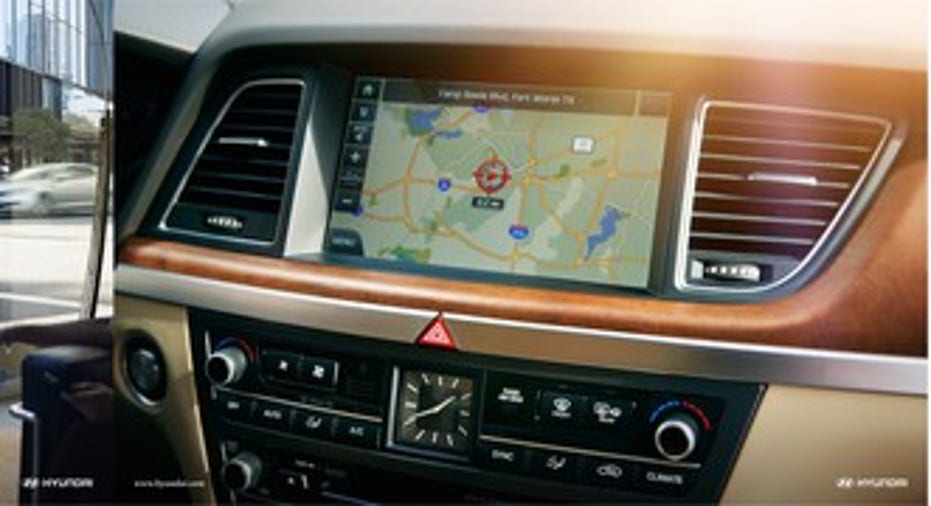Intel Corporation Buys a Computer Vision Startup to Aid Driverless Cars

Intel recently agreed to buy Itseez, a computer vision start-up co-founded by two of its former employees, for an undisclosed sum. Itseez develops algorithms which help automobiles "see" and avoid obstacles on the road, and its driver assistance system helps vehicles stay in their lane.
Itseez has also created a facial recognition technology called Facense and an iOS app called Itseez3D that turns iDevices into 3D scanners. However, Itseez3D wasn't included in the acquisition and will remain a separate company.
Why is Intel buying Itseez?
The acquisition will help expand Intel's Internet of Things (IoT) business, which already produces IoT modules for wearables, drones, and smart appliances, along with chips, software, and a development kit for self-driving cars. Its chips already power infotainment and navigation systems in select Hyundai, BMW, Kia, andInfiniti vehicles.
Hyundai's 2015 Genesis uses an Intel-powered driver information system. Image source: Hyundai.
Buying Itseez can help Intel expand its reach in both the IoT and connected-car markets. The purchase also complements its RealSense computer vision technology, which has already been installed in drones, laptops, and mobile devices.
Intel estimates that the number of connected devices worldwide will rise from 15 billion in2015 to 200 billion by 2020. Research firm McKinsey estimates that cars connected to the Internet will account for 22% of all vehicles on the road by 2020, while many automakers expect driverless cars to hit public roads within the next 10 years. Intel believes it can capitalize on that growth by selling new IoT chips and services, which might offset its sluggish growth in PC chips.
Intel established a dedicated IoT business in late 2013, but the business accounted for only just over 4% of the its sales and less than4% of its operating profits last year. In April, it agreed to buy Yogitech, another IoT company that works on functional safety for semiconductors -- which is required to ensurethat chips powering driverless vehicles operate properly. Later that month, Intel CEO Brian Krzanich announced that the company would shift away from PC and mobile chips and toward cloud computing, the IoT market, and analyzing data from those devices in its data centers.
But Intel has already fallen behind
Intel's shift toward IoT devices and connected cars makes strategic sense, but the chipmaker may have already fallen behind other chipmakers.
Mobileye , which sells ADAS (advanced driver assistance systems) to around 90% of the world's top automakers, has a majorfirst-mover's advantage in computer vision and accident avoidance systems. The company's EyeQ computer vision chips, which are co-developed by STMicroelectronics, are already used by a wide variety of high-end automakers like Tesla Motors. Mobileye claims that the next version of the SoC, the EyeQ5, will "act as the central computer performing sensor fusion for fully autonomous driving (FAD) vehicles starting in 2020."
Tesla's autopilot feature is powered by Mobileye's EyeQ3 SoC. Image source: Tesla Motors.
Meanwhile, Nvidia has been selling its mobile Tegra chips to automakers to power infotainment systems. Robust demand for those processors boosted Nvidia's automotive revenues 47% annually to $113 million (over 70% of all Tegra sales) last quarter. Nvidia is capitalizing on that success by introducing new end-to-end computing platforms, which include computer vision capabilities, for driverless cars. Qualcomm , which pushed both Intel and Nvidia out of the mobile market, also recently introduced its new line of Snapdragon A automotive chips, which were also developed for computer vision applications.
NXP Semiconductors recently became the world's largest supplier of automotive chips after it acquired Freescale. That acquisition enabled it to launch BlueBox, a new turnkey development kit for self-driving cars. NXP claims that four of the five largest automakers in the world are already trying out the system, which competes directly against Nvidia's Drive PX platform.
By buying smaller companies like Itseez and Yogitech, Intel is trying to establish a foothold in the automotive market which is already being carved up by rival chipmakers. However, Intel might lose this market -- just as it did with mobile devices -- if it doesn't get more aggressive with even bigger investments or acquisitions.
The article Intel Corporation Buys a Computer Vision Startup to Aid Driverless Cars originally appeared on Fool.com.
Leo Sun owns shares of Qualcomm. The Motley Fool owns shares of and recommends Nvidia, NXP Semiconductors, Qualcomm, and Tesla Motors. The Motley Fool recommends Intel. Try any of our Foolish newsletter services free for 30 days. We Fools may not all hold the same opinions, but we all believe that considering a diverse range of insights makes us better investors. The Motley Fool has a disclosure policy.
Copyright 1995 - 2016 The Motley Fool, LLC. All rights reserved. The Motley Fool has a disclosure policy.



















